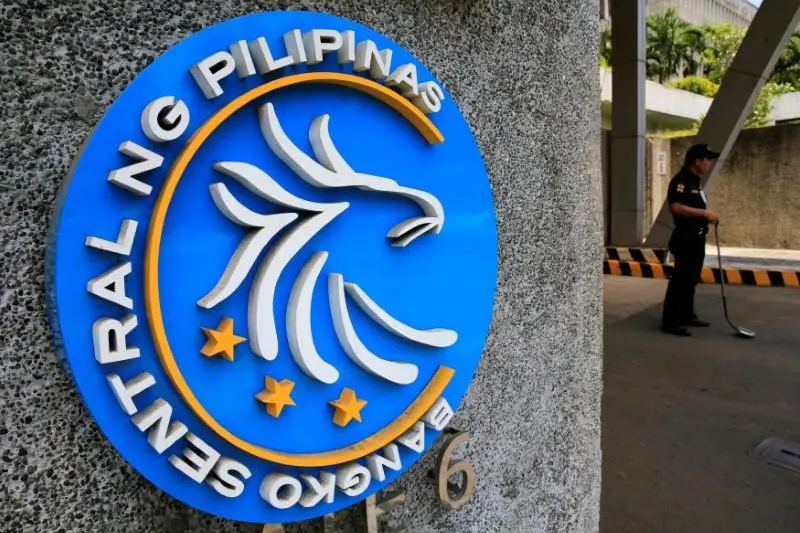PHOTO
The benchmark interest rate may hit 6.50 percent amid the tightening cycle by the Bangko Sentral ng Pilipinas (BSP) during the first semester to preempt the emergence of further second-round effects as inflation blew past expectations to hit a fresh 14-year high in January, according to Fitch Solutions Country Risk and Industry Research.
In a report, Fitch Solutions said the BSP may continue raising its benchmark rate in the first six months of the year.
'At Fitch Solutions, we now think that interest rates in the Philippines will peak at 6.50 percent, upwardly revised from our previous forecast of six percent,' it said.
Last Thursday, the BSP delivered another 50-basis-point hike during its first rate-setting meeting of the year, which brought the benchmark interest rate to a 16-year high of six percent from an all-time low of two percent before it kicked off its tightening cycle in May last year.
The unit of the Fitch Group believes the central bank will deliver another 50-basis-point increase at its next meeting in March, as the sharp increase in core inflation was due to a rise in utility prices as a result of electricity price hikes and the implementation of the water rate rebasing.
Inflation accelerated to a fresh 14-year high of 8.7 percent in January from 8.1 percent in December. It quickened to 5.8 percent last year, exceeding the BSP's two to four percent target range, from 3.9 percent in 2021 due to soaring global oil prices and elevated food prices.
Based on its latest assessment, the BSP now expects this year's inflation to hover at 6.1 percent and 3.1 percent for 2024.
Fitch Solutions raised its inflation forecast for this year to 6.5 percent from the original target of 5.4 percent, as price pressures are taking longer to peak than it previously expected.
It believes the BSP will keep interest rates on hold throughout the rest of 2023 due to an eventual stabilization of global monetary conditions, as well as the central bank's priorities shifting toward supporting the country's economy as the gross domestic product (GDP) growth is seen slowing down to 5.9 percent this year from 7.6 percent in 2022.
As the peso has stabilized after hitting an all-time low of 59 to $1 in October last year, Fitch Solutions sees less need for the BSP to lean toward aggressive rate hikes as the US Federal Reserve is likely at the end of its tightening cycle.
'Given still persistently high inflation, we now expect the BSP to continue raising interest rates to a peak of 6.50 percent in the first half of 2023. Beyond the first half, we think that the central bank will leave rates on hold as global monetary conditions stabilize and as headwinds to the economy grow,' Fitch Solutions said.
Likewise, Japan's Nomura penciled in additional rate hikes of 50 basis points, which would bring the terminal rate to 6.50 percent from six percent as BSP Governor Felipe Medalla signaled that the hiking cycle is likely not over.
'Taking all these factors into account, we revise our RRP rate forecasts and now expect an additional 50-basis-point hikes, bringing the terminal rate to 6.50 percent. Our new forecast pencils in BSP winding down the pace of its hikes and delivering two 25-bp in each of the next two meetings in March and May,' Nomura said.
In a report, Nomura said it expects a more meaningful decline in inflation momentum in coming months, supporting its forecast for a BSP pause after May.
Nomura sees inflation easing to 5.6 percent this year after climbing to 5.8 percent last year.
'Beyond this, we also push out the timing of rate cuts by BSP from the fourth quarter of 2023 to the first quarter of 2024, given BSP's heightened concerns about the inflation outlook. This implies, in our view, that BSP will look to ensure inflation has become further entrenched within its two to four percent target, and so it will take longer to unwind some of its policy rate hikes,' Nomura said
For 2024, Nomura sees the BSP slashing key policy rates by 100 basis points to 5.50 percent.
Moody's Analytics said the BSP remains one of the most aggressive central banks in the region as it has so far raised key policy rates by 400 basis points since it started its interest rate liftoff in May last year.
'The Philippines is still stuck on the inflation train, and that has forced the central bank to pull harder on the brakes,' Moody's Analytics said in its latest weekly highlights and preview.
It pointed out that rising fertilizer prices and supply-side disruptions from bad weather put a rocket under prices, while demand-side pressures have gathered steam and stand to make a bad situation worse.
According to Moody's Analytics, it expects inflation to peak in the first half before tapering off as easing global commodity prices, base effects, and higher interest rates work their way through the market given the lack effects of monetary policy actions.
The research arm of the Moody's Group noted that the BSP stands ready to take all necessary policy action as it is determined to haul inflation back to the two to four percent target range.
'This implies that if the Philippines does not alight from the inflation train soon, more rate hikes could follow. We expect the policy rate to peak in the first half of the year and remain at the terminal rate until inflation visibly trends lower,' it said.
Copyright © 2022 PhilSTAR Daily, Inc Provided by SyndiGate Media Inc. (Syndigate.info).





















